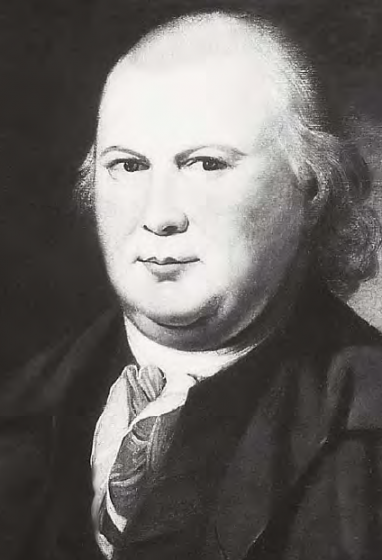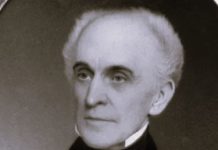Robert Hunter Morris is the embattled governor of Pennsylvania during the French and Indian War (1754–1763). A member of a prominent political family, Robert Morris was born in Trenton, New Jersey, about 1700. His father, Lewis Morris, who also served as governor of New Jersey, appointed his son chief justice of the provincial Supreme Court in 1738.
In 1754, Robert Hunter Morris became governor of Pennsylvania as competing claims to the Ohio Country were plunging Britain and France headlong into the war on the continent. Morris favored an aggressive approach to defending the colony, but he soon ran afoul of powerful Quakers whose pacifism frustrated the war effort.
When British major general Edward Braddock sought funding from the Pennsylvania Assembly for his ill-fated expedition against Fort Duquesne in 1755, Morris lost credibility when the British general was turned away empty-handed. Quakers also agitated over the bounties for prisoners and scalps offered by Morris’s administration. However, in late 1755, Morris waffled over the request for a coalition by the Delaware chief known as Captain Jacobs.
Pennsylvanians paid dearly for this equivocation as this warrior led raids along the Pennsylvania frontier on behalf of the French. Meanwhile, Robert Hunter Morris faced intrigues on a diverse front. His close political and commercial ties to Gov. William Shirley of Massachusetts eventually rendered him a target of the Thomas Pownall, Shirley’s political adversary.
Having replaced Shirley in 1755, Pownall would secure Morris’s removal from office the following year. Despite Morris’s desire for vigorous campaigning against the French and their native allies, the western counties of Pennsylvania largely deemed him negligent in safeguarding their communities. Even had Pownall not been intent on bringing him down, Morris certainly would not have remained in office much longer. By the end of 1756, Morris had managed to alienate many of the Quakers in the eastern part of the colony as well as settlers on the western frontier.
In a final embarrassment, Morris was forced to endure a lengthy audit of his financial records, arranged by Pownall. There can be little doubt that Morris fell victim to the vagaries of colonial politics, with its bitter factionalism and heavy use of patronage. Nonetheless, continuing to hold his position as New Jersey chief justice, Robert Hunter Morris died in Shrewsbury, New Jersey, on January 27, 1764.







